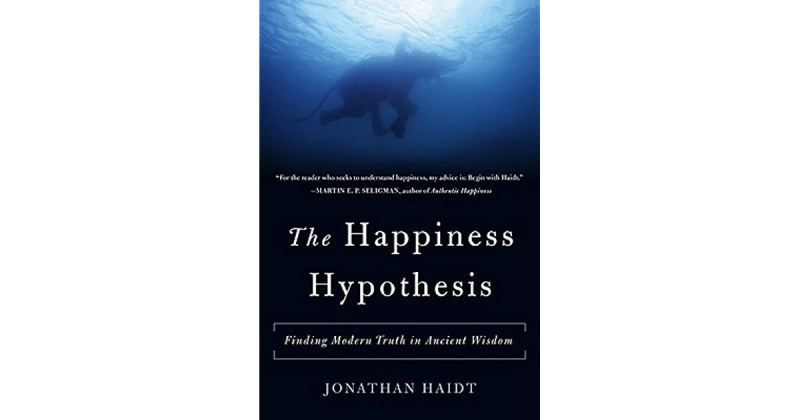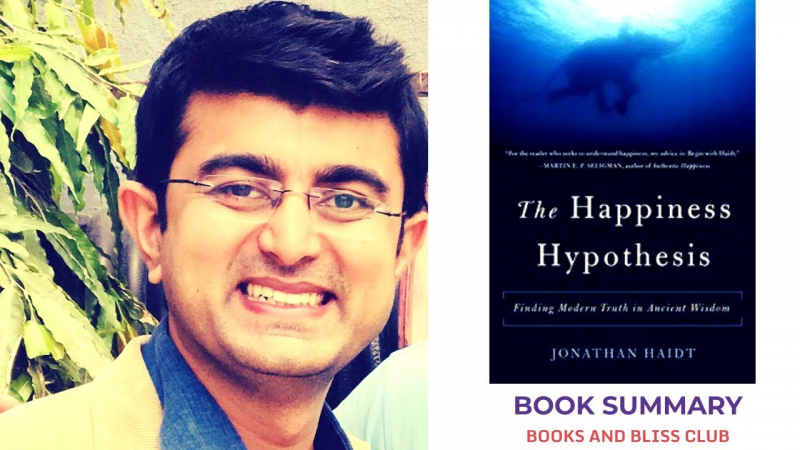The Happiness Hypothesis: Finding Modern Truth in Ancient Wisdom
Jonathan Haidt wrote The Happiness Hypothesis: Finding Modern Truth in Ancient Wisdom for a general audience in 2006. In it, Haidt examines several "Great Ideas" on happiness advocated by thinkers of the past—Plato, Buddha, Jesus, and others—in light of contemporary psychological research, extracting any lessons that still apply to modern lives. The concepts of virtue, happiness, fulfillment, and meaning are central to the book. The author's goal, as stated in the introduction, is to distill the infinite 'wisdom' available to modern people into ten great ideas, one for each chapter. The following is a brief synopsis of the remaining ten chapters in the Introduction.
The first chapter describes how each person is divided into two parts: the primitive part, which contains the basic instincts, and the highly evolved part, which attempts to control the instincts. This effort to control the instincts is shown in Chapter Two to cause readers to worry excessively, but various techniques, such as meditation, may be used to detach the worrier from his worries. The Third Chapter focuses on the individual's relationships with others, beginning with the Golden Rule of doing unto others as you would have them do unto you. This leads to a description of the tendency for people to see flaws in others more readily than in themselves in the Fourth Chapter, which by simply realizing they might go to some length to rectify and thus come closer to living by the Golden Rule.
Link to read: https://www.goodreads.com/book/show/96884












